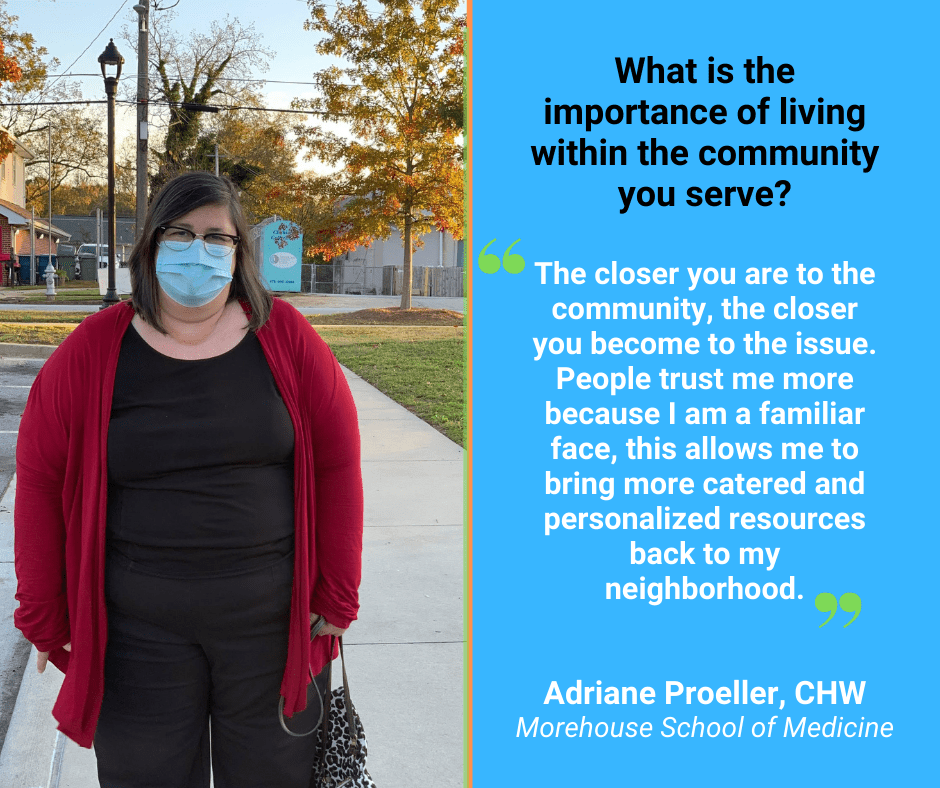By Puru Gaur, Georgia Watch Intern, Emory MPH Candidate
Highlighting the Unequal Impacts of an Unprecedented Pandemic
We are mindful that a public health crisis like COVID-19 disproportionately impacts marginalized and under-resourced communities that have historically faced unjust barriers to healthcare, financial stability, and stable housing. COVID-19 has exposed deep economic and social fault lines nationwide, and Georgia is no exception. This moment reinforces the critical importance of our efforts to dismantle economic barriers based on race. During this uncertain time, we remain committed to fighting for a Georgia where everyone prospers, and communities thrive.
To uplift community members’ lived experiences during this ongoing crisis, we began working with partners last fall to collect stories that amplify the disparate impacts of COVID-19 on under-resourced communities in Atlanta’s west and southwest sides. As part of this story collection effort, we have engaged community health workers (CHWs), many of whom participate in the Community Health Worker Advocacy Coalition. The coalition, which we have led since its formation in 2018, is a network of CHWs and advocates that focuses on expanding the CHW workforce in Atlanta and around the state.
Adrianne Proeller on Life in Southwest Atlanta Before and During COVID-19
Late last fall, we met up with Adrianne Proeller, a long-serving member of the CHW Advocacy Coalition and a powerhouse in the Georgia CHW community. Adrianne works at Morehouse School of Medicine, where she is responsible for Community Engagement and Outreach. She has lived on the southwest side of Atlanta since 2011. Since then, she has watched her neighborhood become engulfed by issues related to gentrification and now the coronavirus pandemic.
As we walked along Metropolitan Avenue, Adrianne talked about the gentrification in her neighborhood. “You can see that the homes in this gentrifying neighborhood are nice, well kept, and probably built by the same developer. However, if you take a look across the street, the homes do not look the same. That is the issue with gentrifying neighborhoods: you have various needs that often go unmet for some people. You have young professionals that move to the area, and they often live near people who are out of work and struggling to make ends meet. COVID-19 highlighted the underlying disparities that exist and made things worse. People who once had jobs and benefits are no longer employed, and now people have to rely on things like SNAP benefits.”
During our conversation, we walked through the Capitol View Manor and Capitol View neighborhoods. We started on Manford Road and talked about the various economic shifts in the neighborhood after gentrification set in some years ago. But significant resources remain absent from the community, including lack of access to nutritious food. As Adrianne emphasized, communities of color often lack access to adequate nutrition; despite the gentrification, the closest grocery store was over two miles from our location.
This deprivation has forced community members to step up and provide their own solutions. “The neighborhood association got together to figure out how we can bring fresh food into the community,” she said, turning the discussion to a recent project she had participated in to address nutrition issues. “We decided we would collectively cash mob a restaurant if they met the following conditions: a safe, well-lit environment; a welcoming environment that is open to all and offers clean, safe, and healthy items on their menu. If they were willing to do that, then we would bring people to their businesses. For our first event, we expected only 50 people to show up. However, to our surprise, we had over 150 people participate.”
Our conversation naturally turned to the impact the coronavirus pandemic has had on this community. Adrianne explained how the lack of adequate internet access disproportionately affects communities of color, which meant that the transition to virtual learning drove many students to the local public library down the road. Rising rents, a problem before the pandemic, still looms and has been worsened by the financial insecurity stemming from COVID-related job losses. Additionally, while gentrification already had caused black-owned legacy businesses to shutter due to rising rent in the area, the pandemic has exacerbated the problem. Yet Adrianne seemed somewhat hopeful about the survival of black businesses. She pointed out a local black-owned barbershop and explained, “there is a real movement to keep black legacy businesses supported. Business developers keep trying to add a diner to this building, but the community is forcing them to keep the black-owned barbershop as part of their design for the building.”
As we made our way back to our vehicles, we mused about what could be done to preserve communities in southwest Atlanta. Adrianne noted that lack of accountability drives the inequities in this neighborhood and other similar areas. She emphasized the need to ensure that those responsible for the problems are accountable. As we continue leading with equity and race in our efforts at Georgia Watch, we believe it is now more important than ever to root out systemic barriers to equity and opportunity in Georgia. We appreciate the tireless work of health workers like Adrianne and look forward to continuing our partnership with CHWs and other frontline workers fighting to protect under-resourced communities.
If you are interested in hearing more of our conversation on gentrification, COVID-19, and communities in Southwest Atlanta, click here to watch the video.


